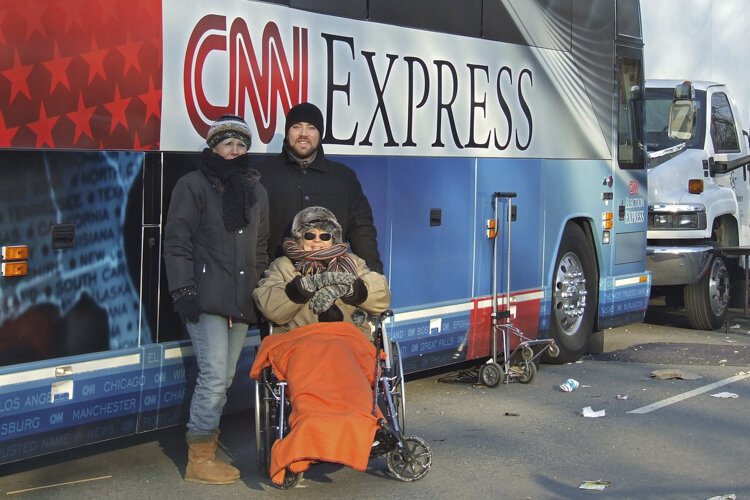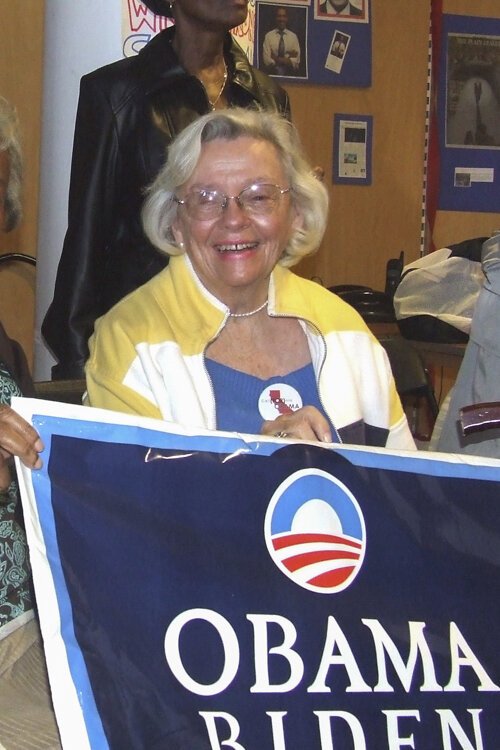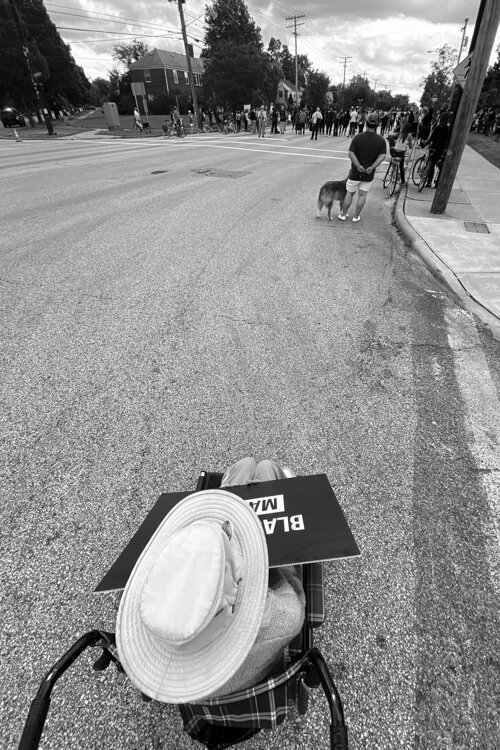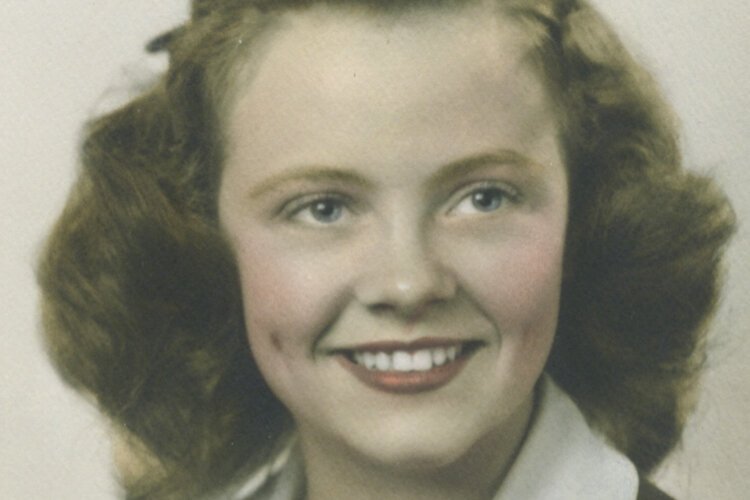Witness to change: Lois Jeavons recalls her 96-year path of solidarity as an 'active activist'
 Courtesy of Lois JeavonsLois Jeavons at President Obama's Inauguration
Courtesy of Lois JeavonsLois Jeavons at President Obama's Inauguration
Lois Jeavons is a 96-year old activist living in University Heights. She has witnessed first-hand discrimination and segregation; the Civil Rights movement and the 1966 Hough uprisings; the Cold War; the development of a polio vaccine; and, most recently, the movement to eliminate systematic racism.
Jeavons deems herself an “active activist” who “shows up” for a cause—attending a Black Lives Matter march in University Heights in June.
Born in Pittsburgh in November 1923 and raised in Cleveland, I have seen a lot of history in the making, but I have not always been an “active activist.”
Watching protest marches and similar events on TV can’t compare with being at the event and seeing the speaker in person. It is only then that the actual magic of connection occurs. There is a true aura of brotherly love that surrounds us when we are walking side by side in solidarity for a good cause.
But I was born in an era that believed those in authority knew best. My daughters introduced me to a different way of thinking during the Vietnam War. At first, I rebuffed them, but gradually they led me to taste the waters of activism as I watched their protest marches and listened to them with an open mind.
 Lois JeavonsFor the first time I opened my ears and began to think about what was happening to our country. I do believe their protests across the country helped to end that war.
Lois JeavonsFor the first time I opened my ears and began to think about what was happening to our country. I do believe their protests across the country helped to end that war.
Many years later my granddaughter attended one of the magnet schools in the Shaker Heights school system. This was one of the ways in which the school board addressed the issue of desegregation in the school system. It was so successful that it has served as a model for other school districts.
This was during the Cold War and everyone’s focus was on how to attain and keep peace between the United States and the Soviet Union. I believed that peaceful resolutions to differences should be learned early in life, so I formed an after-school club [for elementary students in Shaker schools] called “Pathways to Peace.” We were invited to D.C. for a visit with the House of Representatives and the Senate.
To our amazement, we were also invited to visit the Russian Embassy. It was an eye-opener for the fourth-grade club members. The [students] reported that the Russian ambassador and his assistants were friendly and warm—just people like their fellow Americans.This past June, I attended a small gathering in University Heights to show my support for Black Lives Matter.
The unnecessary death of George Floyd in Minneapolis at the hands of a police officer caught the attention of the entire country. My granddaughter, who is an active activist, was the inspiration for my attendance at this protest.
How much good these protests do often take time to discern, but for those of us who want to do “something,” showing up is an important first step.
In the 1950s, I had a memorable encounter with blatant segregation during a visit to Hot Springs, Va. In the village movie theater, the black audience sat on one side of the aisle and the white attendees on the other side.
When the law of the land caught up with such practices, the town fathers tore down the building, rather than comply with desegregation. This was shocking, but I did nothing about it. I did not yet understand that my shock and outrage meant nothing if I didn’t “show up.”
In my defense, I had contracted polio and my focus was directed toward recovering from its effects and trying to raise my two young daughters, as well as keeping an eye on my son who was just starting school.
Polio was indeed an epidemic, but nothing compared to our present COVID-19 pandemic.
 Lois Jeavons at a BLM rally in University HeightsNo one went swimming and none of my friends visited me in the hospital, but there was no social distancing, no one wore masks and schools and businesses remained open.
Lois Jeavons at a BLM rally in University HeightsNo one went swimming and none of my friends visited me in the hospital, but there was no social distancing, no one wore masks and schools and businesses remained open.
It was not until 1954 that Dr. Jonas Salk came out with a vaccine. We all rushed to have our children vaccinated, except for a few diehards who were leery of having their children injected with the vaccine. They instigated a few protests, not caring, or not fully understanding that their children might possibly infect others if they caught the disease.
Today there are those who refuse to wear a mask in public, who are rushing to resume life as it used to be. They are also unmindful of the fact that they could infect others they encounter.
Comparing the polio epidemic with the coronavirus pandemic, I would say that the situation we are in right now is far more dangerous than the polio threat. The whole world has been infected simultaneously, and many more people have died.
Because of the lockdowns of businesses, schools, and industry, I doubt that business will ever be conducted as it has in the past.
Companies and employees of many companies will discover that they don’t need to go to an office anymore. Working from home may prove to be a more efficient way to get the work done. Corporations may discover that they don’t need to pay high rents for fancy offices.
Unfortunately, this could cause even more social isolation than we have experienced with the pandemic—but it could also spur advances in technology and creative solutions to ongoing problems.
I can’t recall a time in my life when the country has been more divided. Not since the Civil War have families and friends been so at odds in their thinking.
 A young Lois JeavonsIt is difficult to remain friends with someone whose values are so different.
A young Lois JeavonsIt is difficult to remain friends with someone whose values are so different.
We need leadership that will unite us and heal the divisions between us. We need a renewal of our faith in a higher power that will guide our country in the right direction. We need to put our emphasis on love, not hate.
And to those of you who are active activists and march to protest the many wrongs we see every day, keep on working for change and always have hope—even if it is as small as a mustard seed.
We can get through all that is happening in our country, if we don’t give up, if we keep on keeping on—and just show up!
